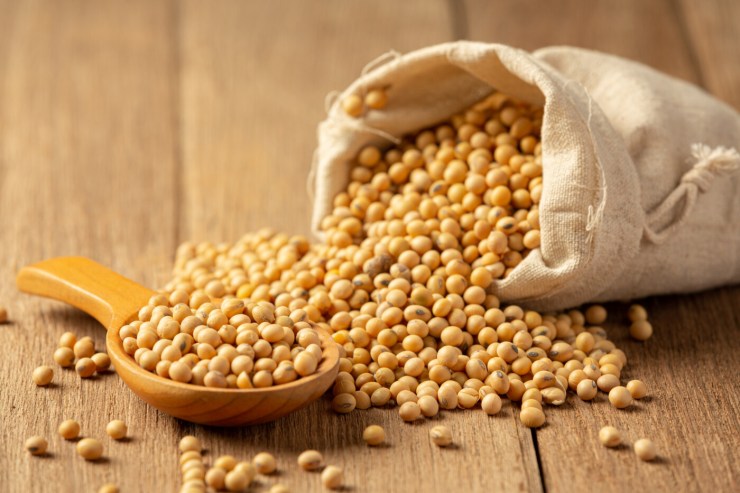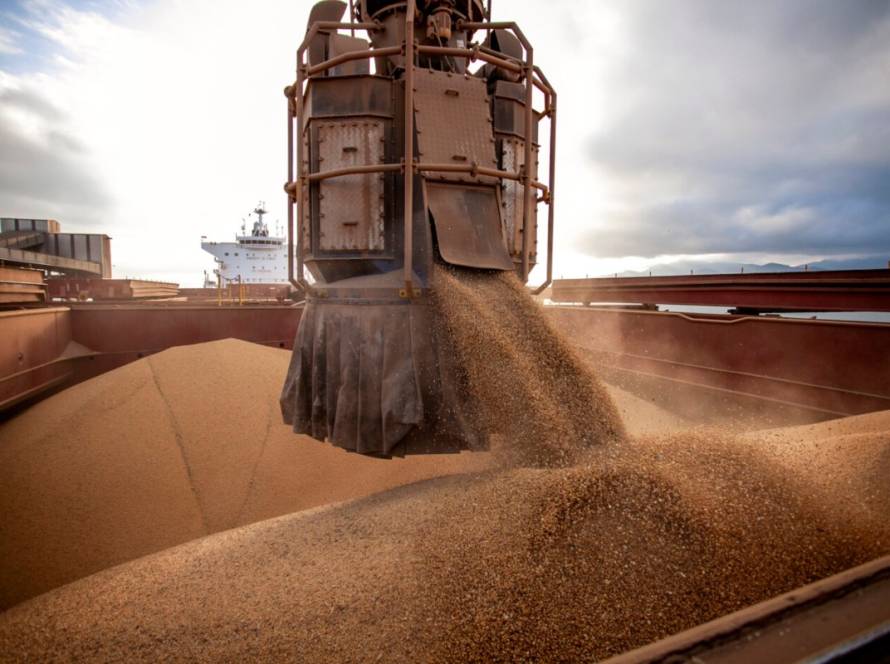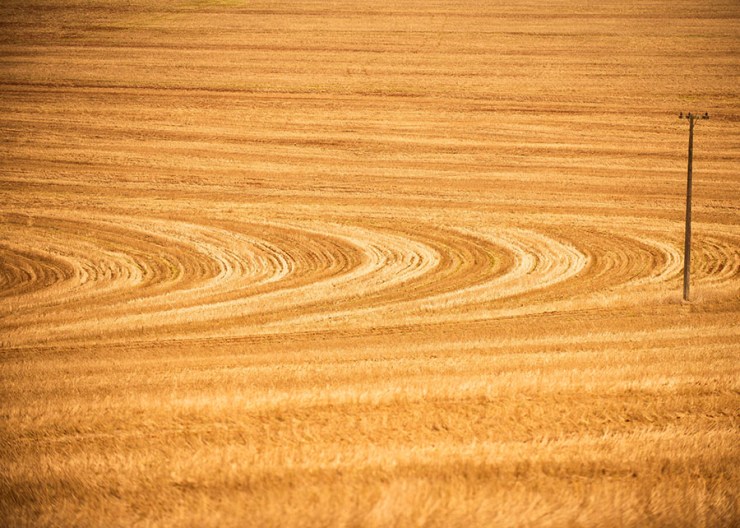Next week, between Tuesday (13) and Thursday (15), Rio Pardo Proteína Vegetal will be present for the fifth time at Fenagra (International Agroindustry Fair). This year, the company, which will have a stand in sector D30, is bringing a new product to the Anhembi District: in addition to RPSOY 180 and RPSOY 700, the most digestible soy protein concentrates (SPC) on the national market for fish, swine and chicken (according to research by institutions specialized in the subject), it will now offer RPSOY C, for the nutrition of calves and piglets up to the pre-initial phase. In this way, Rio Pardo will be serving an even more specific niche in the soy protein market for animals. The Fair is expected to attract around 10 thousand people and admission is free.
According to Leandro Baruel, zootechnician and export manager for the company, the particle size was reduced to two new granulometries: 75 and 100 microns (75 and 100 µm). To achieve this, an investment was made in adaptations at the factory in Sidrolândia-MS, which gained an even more modern grinding system. “The size was one third of our smallest (180 µm), generating a perfect ingredient to compose dairy substitutes for these animals. Combined with the fact that it already comes from the most digestible product on the market, having extremely reduced grains makes it ideal to be the protein in the mixture in liquid products for animals in their first days of life”, he points out.
The official launch for the domestic market (previously, the company only exported to specific European regions for calf breeding) marks Rio Pardo's pioneering role in developing differentiated products. The work began in 2023, with research into inputs and formulas to achieve the final product. Now, the company is consolidating itself in the manufacture and supply of high biological value proteins in the country and also increasing its production capacity of finely ground products by 150%: from 800 to 2 thousand tons per month of RPSOY C, supplying important players in the national and international markets.
Among the advantages for piglets using a milk replacer are weight gain of more than 20%, greater absorption of protein and nutrients (largely due to the fineness of the powder), improvement in intestinal health and in the transition to solid food, and reduction in pre-weaning mortality. “These animals go through a lot of stress when they stop drinking milk. So, the milk replacer prepared with our special protein begins to be offered in liquid form to the sows, making it easier for the farmer to feed the piglets from birth, which still includes powdered feed and, later, a pre-starter feed with high-quality and digestible ingredients, also prepared with our product”, adds Baruel.
The proven best product in Brazil
Through studies by Aquadvise, Chile, the Federal University of Viçosa, and Unesp (São Paulo State University “Júlio de Mesquita Filho”), Rio Pardo Proteína Vegetal has proven to have the most digestible Soy Protein Concentrate (SPC) in Brazil for salmon, swine and chicken, respectively. With salmon, digestibility was above 98%, against the market average of 90%; with swine, 94.32% x 88%; in chicken and turkey, the quotient of 83.7% beats the market average of 79.4%.
Unique production process
Patented in Brazil, the United States, the European Union, Japan, Chile and Canada, the technology developed by Rio Pardo for the production of soy protein brings advantages that add to health, better refinement of the product and sustainability. The main difference in the procedure is the unification of the stages in the processing of soybeans. In traditional processes, the first stage involves separating the oil from the grain; then, heating is carried out to remove solvents. Then, a second stage is needed to remove the soluble carbohydrates, which contain the antinutritional factors of the soybean. In this extraction, alcohol is used and, to remove it, the grain is heated again. At Rio Pardo, all of this is done at once, drastically reducing the consumption of thermal and electrical energy.
Fenagra 2025
Fenagra is now in its 18th edition and is the combination of six major events held at the same location and times, within the Anhembi District: Feed&Food: Technology and Processing; Animal Recycling; Expo Pet Food, Expo Aqua Feed, Expo Animal Feed and Expo Oils & Fats. As such, it is the main business fair for the Animal Nutrition and Human Nutrition sectors together (and the largest in the sector in Latin America in the Feed and Food market), covering important sectors of the Brazilian economy such as: Biodiesel, Meatpacking and Rendering, Animal Nutrition – Pet Food, Aqua Feed and Animal Feed (poultry, swine and cattle), Vegetable Oils and Fats Industry, Grains and Derivatives.
In a total area of over 16,000 square meters, over 230 exhibitors, 260 brands, 11 conferences and 200 lectures will make up the program during the three days of the event, which is expected to attract over 9,000 visitors from 17 countries, in addition to Brazil. The organization, which generated two thousand direct jobs and injected R$7 million in resources into the local economy, projects a turnover of over R$880 million in business.
Service
18th Fenagra
When: May 13-15 (Tuesday-Thursday)
Opening hours: 11am to 7pm
Location: Anhembi District
Address: 1209 Olavo Fontoura Avenue – Santana, Sao Paulo (SP)
Website: www.fenagra.com.br
Instagram: @fenagra
Free entry.





